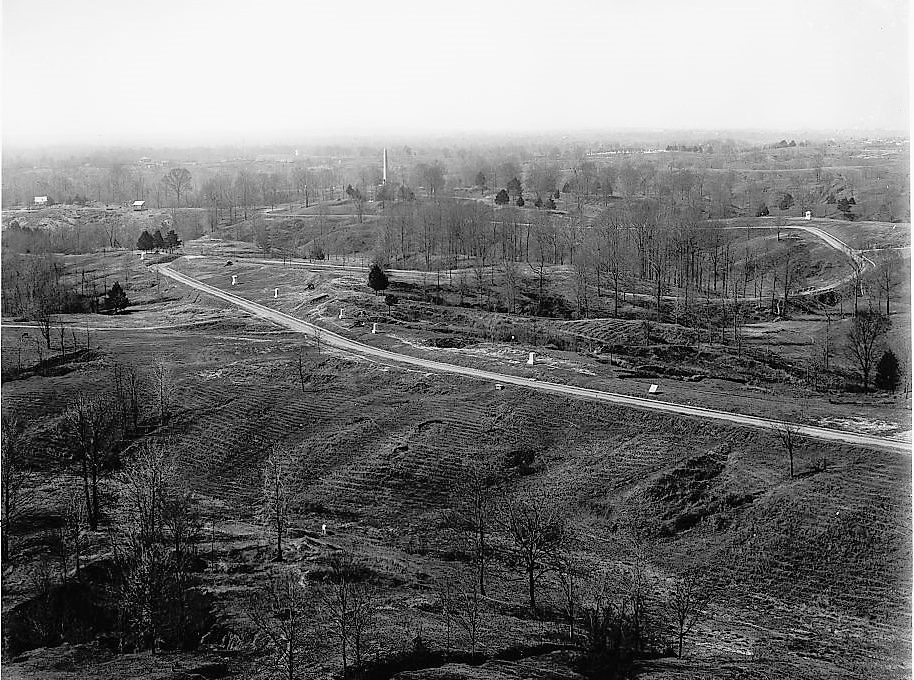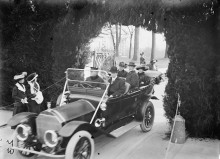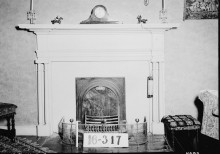Dr. Joseph Dill Alison, the author of this diary was born December 23, 1828, at Charleston, S. C., and died at Carlowville, June 3, 1905. He was the son of Hugh Lee and Mary Catherine (Beekman) Alison, South Carolinians who removed from Charleston to Carlowville, in 1833. The former was educated in Charleston and graduated at the school of medicine at that place. His grandparents were Jacob Hyleman and Margaret (Lockwood) Alison and Samuel and Anne Lee Beekman, the former a native of New York, a Lieutenant of the First South Carolina Line in the Revolutionary War and was a member of the Cincinnati Society at its founding in 1783.
Become a true Alabama Pioneers Patron – Get the Alabama Pioneers Patron APP
Dr. Alison attended a boys school in Dallas County and received his college education at Spring Hill, in Mobile. He graduated from a medical school in Charleston, S. C., in 1850, then returned to Dallas County where he practiced medicine until the outbreak of the War Between the States and had the rank of Major in the Confederate Army. At the end of that war, he resumed his practice. He was a Justice of the Peace between 1885 and 1895. He was a Democrat and an Episcopalian. On March 11, 1852, he married Henrietta Catherine Reynolds Townsend at her father’s home known as Panther Creek Plantation, in Lowndes County, Ala. They were the parents of twelve children.
WAR DIARY OF DR. JOSEPH DILL ALISON
OF CARLOWVILLE, ALABAMA
Part 3
May 17th —The enemy attacked our forces beyond Big Black, for some reason our men would not fight and we were utterly routed. Reports say we have lost two-thirds of our army and the balance is demoralized. I never saw men more dispirited.
A rumor is circulated that Gen. Pemberton has sold Vicksburg and many believe it. If an attack is made tomorrow, we are lost. Things look very gloomy. I have never been low spirited before, but things look too dark for even me to be hopeful.
May 18th —Many of our troops who were supposed to be cut off have come in, and all is not as bad as it appeared yesterday, but still far from bright. Haynes Bluff on the Yazoo has been evacuated and all of the forces are in the timber around Vicksburg. The enemy have a line entirely around us, leaving us no outlets. Our only hope is that we can hold out until Johnston arrives with fresh reinforcements, and attacks the Yankees in the rear. Gen. Pemberton says he can hold out as long as provisions last, and our commissaries say they can feed the army six weeks. If so, we may yet be rescued. What must be the feelings of my dear Etta (his wife), she can only hear rumors, and all exaggerated. I would feel easy did I not know how miserable she must be.
May 19th —The enemy attacked our lines at 8 o’clock this morning, and have made several desperate attempts to storm our trenches, but were repulsed with heavy loss. Fighting steady all day but we still hold our own. The spirit of the men is improving. Things begin to look better.
May 20th —Skirmishing all around us. Mortar boats shell us incessantly, and the shots from the enemy line go entirely across our lines and some fall into the river. The shells from the boats do not go far into the town yet. The Mortar boats are under the banks across the bend and are entirely protected from our guns, still we keep up a steady fire on them. The gunboats come up every night and entertain us until driven off by our guns. The shelling continues all night. Our loss has been very slight, but that of the enemy very heavy.
May 21st —Fighting all along the lines, the Mortars have moved lower down and now have us under a cross fire, their shells crossing in town. We certainly are in a critical situation. No safe place to be found. Escape from fire on one side exposes us on the other. Still our loss is very slight. We men are in fine spirits and satisfied that we can hold out a month. Johnston must relieve us soon. Davis can’t intend to sacrifice us, and will send reinforcements before long. Every advance of the enemy has been repulsed.
May 22nd —The firing today had been terrible, the gunboats have come up and engaged our batteries, the Mortars continue shelling in a continuous roar all along our lines. We are penned in two miles square and are fighting all around. If this is not a hot place, I hope I may never see one. It has been reported that one of Grant’s couriers has been captured with despatches to Farragut to push us on the river, as Johnston was coming up on his rear, and what was to be done must be done now. Towards night, the Mortars slackened off and we had a few moments quiet for the first time for four days and nights.
May 28th —Our situation has not changed since the last date. Shelling all around the lines during the day, and from the Mortars day and night. They have attempted only one more charge and were repulsed with heavy loss. Our men are lying in the trenches but not returning the fire. The enemy keeps up a continual fire but do no damage except here a man imprudently exposes himself. Yesterday, the 27th , I witnessed a gunboat fight while at Lynch’s Battery. She came bravely down to the attack, and lay in such a position that we could only bring four guns to bear on her, and two of them not very good ones. During the fight, the Yankee Batteries and sharpshooters kept up an incessant fire and the boat sent canister as thick as hail stones. In less than an hour she got her dose, and signaled for assistance, but it was too late. She made for shore and sank near the bank, out of reach, for the enemy’s batteries rake the whole of that bank. Our men picked up some trunks and light articles that floated down. She was a first class Iron-clad, with 13 guns. Gunboats are now just as much afraid of our batteries as we once were of them. The lower fleet moved up, but backed down again before they got in reach of our guns. Report says we got a paper from one of the prisoners taken a few nights ago and in it find that Bragg has routed Rosecrans. Some of the prisoners say that Johnston whipped them on the other side of Big Black, but others say they whipped us. It is decidedly unpleasant to be cut off from the world, and know that important movements are going on outside, without being able to learn the nature of them. Today is the tenth day we have been fighting. The Mortars are not shelling as fast as usual.
May 30th —Lamar Fontaine came down the river in a “dug out” with despatches from Johnston promising us assistance soon. He has now sufficient force to meet Grant. Shot and shell crash in every direction. There is no safe place, occasionally the wounded are killed in the hospitals.
June 2nd —Our situation is the same. No more news from Johnston. But we are sanguine and look for help soon. This morning a shell set a house on fire and before it could be outed destroyed a fine block on Washington Street.
June 10th —This is the 23rd day of the siege and no relief yet. Surely Johnston could have reached here in this time. Our situation now becoming desperate. No place of safety. If you stand still there is danger from the pieces of shell that fill the air, and if you move the danger appears greater. The whole town is enfiladed. The wounded are killed in the hospitals, surgeons wounded while attending to their duties. Two days since Major Headley was killed in camp within twenty feet of where I was dressing a wound. Our hospitals are crowded with wounded. Some poor fellows are compelled to lay out in the open and get attention from any doctor who happens to pass that way. Sick lists very large, the men having been in the trenches for three weeks with no protection from the sun. They can’t stand up without having a dozen bullets whistling around their heads, and to attempt to walk is certain death, Our troops have behaved nobly, but nature can’t stand it much longer. Night is almost as bad as day. The air is filled with missils of destruction. I have read of besieged cities and suffering of the inhabitants, but always thought the picture too highly painted. But now I have witnessed one and can believe all that is written on the subject. Rations are short, but still enough, and we have good water most of the time, so we do not as yet suffer on that score. But the stench from dead mules and horses (killed by shell) is intolerable.
June 23rd —It is now raining for the first time since the siege commenced. Today is the 36th since we have been surrounded, and no improvement in the situation, except that the Mortars have ceased firing. I think they must have worn out, as the last shots fired all fell short. The shelling from the lines continues. Twelve of our wounded were killed in hospital No. 1, and some others have suffered equally. Rations very short. We are all in good spirits and look for help one of these days. Our friends outside suffer more in mind, much more than we do. It would surprise anyone not accustomed to shelling to see how coolly we take it. Incessant fire. Lt. Young was killed on the lines. He was as clever a gentleman as ever lived, and his loss will be long felt by all who knew him. He was the last of three brothers, all perished in this cruel war. The Vaiden Artillery has already lost four men, one more is dying from his wounds and another has had his arm taken off. Rations very short. There is talk of our being compelled to eat mule beef if not relieved very soon. There is a great deal of sickness in the army. Thirty-nine days in the trenches will kill any set of men.
July 4th —Strange to say all is quiet today, but how long it will last no one knows. Yesterday, the shelling was terrible. My end of town was too hot to stay in, however it quieted down about dusk. All the men I have seen today are much depressed and look for a surrender soon. I am still hopeful and try to keep their spirits up. Our troops have laid in the trenches for forty-seven days. We have been eating mule “beef” for nearly one week, but it has not been issued to the whole army yet, but I presume will be tomorrow. I have not tasted it yet but hear it is very good. I still look for relief, but fear Johnston will put it off until the last moment. The men in the trenches are suffering very much from short rations and the distress of the wounded is horrible to think of. Many of them die for he want of proper food to support their strength. Erysipelas is prevailing, and where that will end, none can say. So far my health is better than I could have expected under the circumstances. Although far from well, I have always been able to attend to my duties. This morning is the only quiet one we have had in 47 days. Ten o’clock, Vicksburg surrendered. July 4th, 1863.
(The End)
Tapestry of Love: Three Books In One
Inspired by actual people and historical events of colonial America, “The Kingdom of Accawmacke” is revealed and secrets about America’s history are discovered in this well-researched series. The story begins in 17th century England during the reign of Charles I and continues a family’s journey to the eastern shore of Virginia and Maryland.
REVIEWS
The exhilarating action & subplots keep the reader in constant anticipation. It is almost impossible to put the book down until completion, Dr. Don P. Brandon, Retired Professor, Anderson University, Anderson, Indiana
This is the first book I have read that puts a personal touch to some seemingly real people in factual events. Ladyhawk
Love books with strong women…this has one. Love early American history about ordinary people…even though they were not ‘ordinary’…it took courage to populate our country. This book is well researched and well written. Julia Smith
A picture of love and history rolled into one. A step back in time that pulls you in and makes you a part of the family and their world. Ken Flessas
Each book’s writing gets stronger, characters become real, the struggles and sorrows that laid the foundation for this country. Addictedtobooks
Not only is the story entertaining, it opens the eastern shore of the early Virginia Colony to the reader as a picture book….I know this story will touch many peoples’ hearts. B. Thomas
At the age of sixteen, Mary and her husband, whom she barely knows, are forced to escape the only home they’ve ever known and settle in the primitive 17th century world of America where they shape their family’s destiny for generations.





